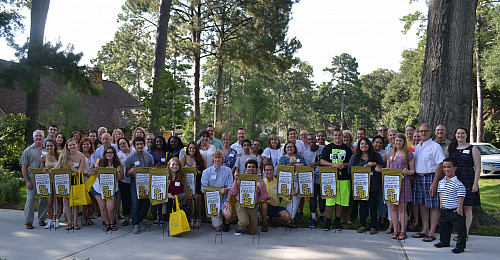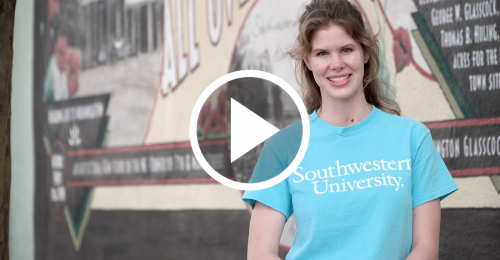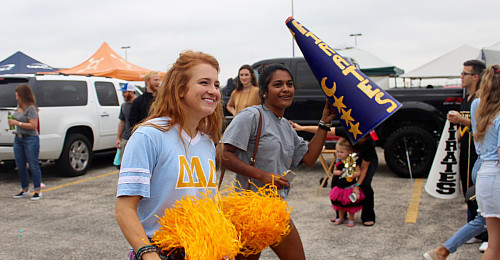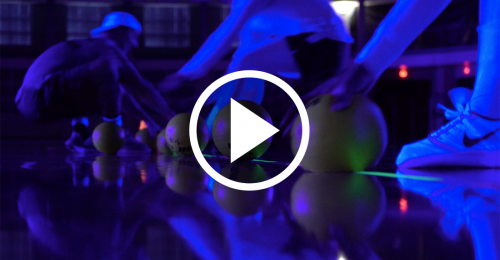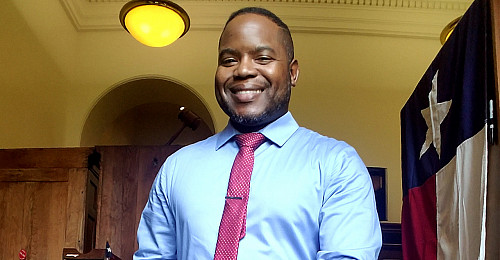The 2020 Course Design Fellowship is sponsored by the Office of the Dean of the Faculty and the Center for Teaching, Learning, and Scholarship and supports faculty who need time and support to create new courses or substantially redesign existing courses. It enables faculty to:
- experiment with new or evidence-based pedagogies;
- develop an emphasis on long-term thinking and connection-making to promote connections within a course, across courses, or beyond the course;
- create a research-rich curriculum, by incorporating significant inquiry and research components into a course;
- Civil Discourse Fellowships: develop courses that include a significant focus on free speech, civil discourse, and empathetic listening;
- and other projects related to departmental or university curricular or pedagogical goals.
Fellowship Activities and Requirements - Fellows:
- Participate in a one-day course design workshop in early summer;
- Design or redesign a course built on learner-centered design principles;
- Submit the new or revised syllabus as well as a brief narrative about the course at the beginning of the semester in which the course will be taught;
- Assess the course’s success and submit a brief report after the course is offered .
Compensation and Support
- Fellows receive a $2,000 stipend for the summer;
- Civil Discourse Fellows, in addition to the stipend, will receive a $1,000 budget for course programming expenses.
2020 Course Design Fellows

Fall 2020
France Traditionally - and at least since the late 1600s - Western theatre has been based on the staging of a pre-existing text. The artists working on a specific production - actors, directors, designers, dramaturgs, etc.- have always looked to the written word with a high degree of deference, especially for reasons connected to copyright laws. Most theatre in the US still exists within this paradigm, even if production modes are changing. Increasingly, theatre artists are developing their performances from scratch and through a process called devising. In this class, students will explore what it means to work without a pre-existing text and without pre-established roles and hierarchies. Students will do this by conducting research and by collectively developing original material for performance, through team-work and experimentation with the other students in the class. This class will be very valuable to our students, who will have the opportunity to engage with alternative modes of production.

Spring 2021
I am applying for the Course Design Fellowship to redesign my Attraction and Close Relationships course. For the purposes of this fellowship, my revisions will have two primary foci. First, because of the benefits I have seen the course have in preparing students for faculty-student research and our research-based capstone course, I want to create a more research-rich curriculum, in which students practice evaluating the quality of research skill will fill a gap in our curriculum and ultimately better prepare students for more independent research in capstone. Second, given that the close relationships field is interdisciplinary and draws from a number of academic disciplines (e.g., psychology, communication, sociology, family studies, anthropology, philosophy), I aim to increase my focus on the connection-making that occurs in the field and explore with students how the interdisciplinary nature of the field is both an asset and challenge. I believe that doing so will (1) enhance student’s understanding of the context and theories covered in the course, and (2) lead to more critical thinking about interdisciplinarity and connection-making more largely (a skill we promote and value as a university).




Alison Marr, Fumiko Futamura, John Ross, and Therese Shelton
Mathematics and Computer Science - “Modern Calculus II”
Spring 2021
In Fall 2020, we will begin offering our newly re-envisioned Calculus sequence, Modern Calculus, that was co-created with Centre College as part of an ACS grant. Modern Calculus I will be offered for the first time in Fall 2020 and steps are already underway to create materials for this course using resources from centre college. Modern Calculus II will be offered for the first time in Spring 2021, but we do not have the same set of resources available (books, pre-tested inquiry-based materials, etc.) for this course. This is a major sequence redesign process and we are requesting support for a subset of the mathematics faculty to help create materials for the second course. Modern Calculus II. Since this is a course that is rotated through all members of the department, we want to jointly create the materials we will all be using over the years to come.

Fall 2020
I will design a new interdisciplinary culture course that will bring together my knowledge in French food culture and my Paideia expertise. Using the theme of French food culture, students will learn to make connections between four disciplines:
- HISTORY: Part one of the course will be a history segment on French cuisine’s political origins, codification process, and conceptual underpinnings such as the invention of the restaurant and food criticism.
- CULINARY & VISUAL ARTS: Part two will delve into aesthetics as a defining element of haute cuisine and gastronomy.
- SOCIOLOGY: Part three will incorporate sociology, namely the values and norms related to food and its crucial function in French culture.
- ECONOMICS: Part four will focus on the national economic implications of the perpetuation of small-scale, independent specialty shops, artisan foods, as opposed to supermarkets and industrial food.
One of the pedagogical driving forces behind this course will be paideia. The course will incorporate the practice of making connections in several assignments, and will highlight this aspect in the grading criteria and learning outcomes. Students will be assigned a paper worth 10% of the grade in which they will be prompted to reflect on the integrative quality of their learning experience and on the added value of integrating several disciplines to better understand the course topic. The Paideia practice of making connections will also constitute part of the final exam. This new course will serve as a pilot for more fully interweaving my Paideia expertise into my other courses, starting with the Capstone course I will teach in the following spring on multicultural France.

Spring 2021
The proposed course redesign project entails a substantial revision of my fall 2018 Unsilencing the Past: Chicana Feminisms in the BorderlandsFYS course. In the revised course students will examine the historical development of Chicana Feminism in the U.S. through an enhanced inquiry-based learning experience, working with and contributing to the Latina History Project (LHP) digital archival project. The course will be offered as an upper-level topics course within the Feminist Studies Program for the first time, requiring an expanded focus on feminist scholarship and the methodologies and pedagogies, particularly inclusive pedagogies and digital humanities (DH) pedagogies. This expanded focus on inquiry-based learning centered on DH and inclusive pedagogies requires me to devote time and resources to further developing my proficiency in these areas and integrating the degree of student interaction with primary source materials as pedagogical resources, creating a more robust emphasis on the DH research component of the course, and centering the course within FST curriculum and program goals. This redesign is significant in that Chicana Feminisms will provide the university with an additional inquiry-based course, affording more students high-impact learning and research experiences. The course could also serve as a model adaptable to other SU classes. Finally, the course is important for its emphasis on the use of inclusive pedagogies, which have shown to facilitate student belonging and support retention at SU.
2019 Course Design Fellows

Inquiry-based learning has become a central component of many lower-level courses in the natural sciences. In Kinesiology, we have had success incorporating such methodology in several upper-level courses but have yet to use it in our anatomy & physiology sequence. As a foundational class, it is important to move beyond the simple description of the structure and function of the human body. With many students in this course exploring careers in clinical sciences, the use of such inquiry-based approaches (e.g., differential diagnosis) is important. The use of a problem-solving approach in this course will develop a deeper and more meaningful understanding of the material. Such work will promote reflective student engagement with the material where students work in small groups, promoting cooperative engagement and team skills. In A&P I, the laboratory portion focuses exclusively on the structure and function of the musculoskeletal anatomy. Using a regional approach, students explore major joints in the body. Currently, the “application” of material is delivered in a more traditional lecture setting by providing clinical applications to the students. Learning of this material is then assessed as part of the laboratory exams. The purpose of this project is to make the application of the material more experiential using a series of case-studies to accompany the laboratory exercises in A&P I. Specifically, students will work in small groups to explore a clinical case to develop a diagnosis (and maybe intervention) of the presented problem.

This is an important course which looks at the ways in which the concept of “Religion” must be broadened to include non-textual, culture and place based religions. My goal is to expand the course to include an immersive web portal, significant online resources, and theoretical and experiential materials from Environmental Studies and RES. The course offers students the opportunity to read and discuss primary and secondary materials on place-based religions, but would be expanded to also tie these experiences in with historical and cultural contexts, concepts of intergenerational trauma and systematic racism, and the psychology of oppression. This would improve understanding, cross multiple disciplinary lines, and provide for a fuller, richer course.

I propose to re-design both Organic Chemistry I & II (CHE51-314 and CHE51-324) to incorporate a significant number of faculty created videos and companion on-line quizzes. These videos will have two types: (1) videos that convey content that is readily disseminated without interactive lectures and, (2) videos that introduce broad topics to prepare students for more complex concepts that will be explained in class. These videos will allow me to “flip the classroom,” allowing students to consume content at home while saving classroom time for application of advanced concepts.

Quantitative Methods in Business is designed as an essential foundational class that helps develop the mathematical and statistical competency necessary to facilitate progression and success throughout the business major. Fall 2019 will be the first semester it is taught in the department by faculty. The class is the prerequisite for Finance, which is the prerequisite for Capstone. The course is designed to ensure that students are comfortable with quantitative concepts and prepared to do well in Finance, and retain financial concepts to take Capstone successfully. Instead of focusing on the math concepts and discussing the business applications, the class will be designed to focus on common business situations and discussing the math concepts used to make decisions. The design process will include browsing through different textbooks on the subject to select business applications most mentioned and structuring the course content through those applications. The goal is to approach the course as a business class instead of as a math class to alleviate students’ aversion to math. Assessment of whether the course accomplishes the stated goals can be done via class surveys administered at various points of the semester (at the beginning and the end) and various points in the major (Finance and Capstone).

I am applying for the Course Design Fellowship because I would like to redesign my Evolutionary Psychology (EP) course. Because I will be teaching EP during Fall 2019, this summer fellowship would give me the time and resources necessary to improve it once more before submitting tenure review materials (August 2020). EP is a lower-level core course and currently uses mostly lecture and discussion to survey the field. While this approach has been successful, I believe it could be much more effective. There are two main changes I would like to make. First, I want to incorporate greater connection-making by taking greater explicit advantage of the fact that EP is fundamentally interdisciplinary – by intentionally reframing lectures, assignments, and assessments to reflect this. Second, I was inspired by the self- regulated learning talk I attended during Fall Faculty Conference and would like to incorporate some of those practices into this course – e.g., a beginning and end of term self-assessment of learning, an intense semester-long project with specific self-regulated learning components. I think the value of these changes would be realized if students left the course believing that it truly reflects the Paideia philosophy of making connections via the interdisciplinary framing, and if they felt more thoughtful and conscious of their own learning.

There are three objectives for redesigning the marketing for nonprofit organizations course. First, the redesign will transform the course from a survey course of different social issues to a class which examines consumer welfare in depth. Issues related to consumer welfare include product safety and labeling, consumer equity (accessibility for all consumers), choice in product/service providers, and data privacy, extending the definition of a “consumer” beyond a traditional goods context to consumers of healthcare, transportation, and other services. Second, the redesigned format of the course will include readings and research from a variety of disciplines since a thorough examination of consumer welfare spans many fields of study (e.g., philosophy, computer science, psychology). This provides students with opportunities to make deeper and more meaningful connections among disciplines. Third, the redesign will incorporate a greater research component into the course. Students will conduct a significant amount of secondary research early in the course to learn about different topics. This research will be utilized in a final project in which students will be asked to incorporate consumer welfare considerations into a customer relationship management plan (a specific type of marketing plan). The redesigned structure allows for a more cohesive research and project experience than the current class format because the project builds on earlier research and the overall topical foundation of the course.

American Politics (PSC 32-114) is a general education course and one of the first courses students take as part of the Political Science major. As such, it is designed not only to introduce students to the theories and methods of political science, but also to help them understand their role in government and politics as residents and citizens of the United States. To gain experience talking about controversial issues in a civil manner, I propose redesigning American Politics to include a deliberative discussion assignment that plays out over the course of the semester. Students will meet in moderator-facilitated small groups four times throughout the semester. In this class time, they will develop a series of resolutions where they recommend a policy position on a contemporary, contested issue. The goal of the conversation will be to recommend a strategy for collective action around the issue and for promoting adoption of their preferred policy outcome. I will assess the students’ participation in these civic discussions through a focused, detailed rubric. I will also assess the effectiveness of the deliberative discussion assignment using a set of student surveys that allow for comparison across two dimensions: within students from the start of the class to the end of class and between students that take the version of American Politics that includes the political discussion assignment and another version that does not include the same type of political discussion.

